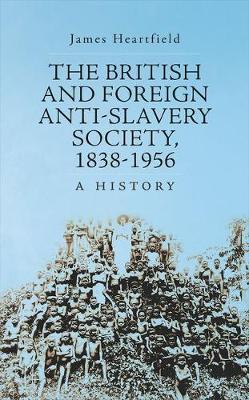After West Indian slavery was abolished in 1833, the campaign turned to the wider world and the goal of Universal Emancipation. Veteran agitators Joseph Sturge, Lord Brougham and John Scoble launched the British and Foreign Anti-Slavery Society at a world convention in 1840.Throughout its long history the British and Foreign Anti-Slavery Society was instrumental in framing Britain's diplomatic policy of promoting anti-slavery -- a policy that projected moral authority over allies and rivals, through naval power and international tribunals.The BFASS pushed for, and prepared the 1890 Brussels conference that divided Africa between the European powers, on the grounds of fighting Arab slavers. The Society was torn between its belief in the civilising mission of Europeans, and its brief to protect Africans. Rubber slavery in the Belgian Congo, indentured 'coolies' in the Empire, and forced labour in British Africa tested the Society's goals of civilising the world.This first comprehensive history of the Society draws on 120 years of anti-slavery publications, like the Anti-Slavery Reporter, to explain its unique status as the first international human rights organisation; and explains the Society's surprising attitudes to the Confederate secession, the 'Coolies', and the colonisation of Africa.
- ISBN10 0190491671
- ISBN13 9780190491673
- Publish Date 15 December 2016 (first published 17 November 2016)
- Publish Status Active
- Publish Country US
- Imprint Oxford University Press, USA
- Format Hardcover
- Pages 504
- Language English
